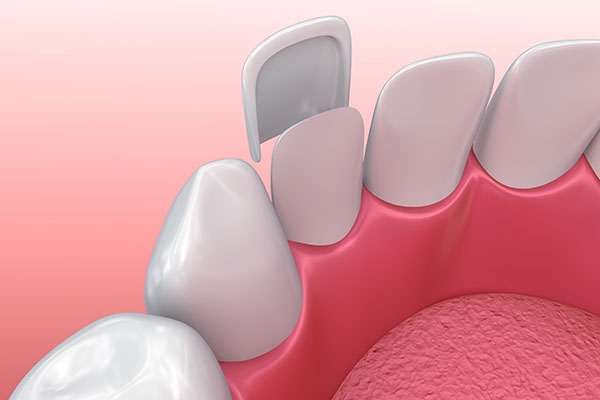4 Benefits of Dental Veneers

Dental veneers are thin, custom shells that cover the front surfaces of teeth. These dental restorations are often made of porcelain. Many celebrities get dental veneers in order to achieve a stunning smile. Knowing more about these restorations can help you make informed decisions about your treatment. Here are the four main benefits of dental veneers that you must consider.
1. Do not need extensive maintenance
These custom shells do not need extra maintenance. Caring for them is like caring for natural teeth. Brush for two minutes with a soft-bristled toothbrush and fluoride toothpaste. Floss before bed and use an antibacterial mouthwash.
Dental veneers are often made of porcelain. This material is non-porous, so it is resistant to damage and stains. Each shell can provide an extra layer of protection. But even if these restorations are durable, they can still chip or break. Refrain from eating crunchy or hard foods to help keep them in top shape.
2. Cover dental discoloration and damage
The dentist may recommend dental veneers for restoring deep dental stains and mild to moderate dental damage. Some stains penetrate deep into the tooth. Traditional in-office teeth whitening treatments cannot correct this type of discoloration. Covering the affected tooth can bring back the tooth’s healthy color. Chips and cracks can disappear when dental veneers cover them. The shells provide protection from future damage as well.
3. Provide quick dental straightening
Crooked teeth are a cosmetic dental problem. Some patients do not want to wear braces or aligners for months. The discomfort of wearing them tends to be off-putting as well. The dentist can recommend dental veneers to provide straight-looking teeth. Placing the custom-fit shells will not hurt at all. Getting these shells will take only one to two visits.
4. Natural-looking with minor enamel removal
One of the most attractive traits of dental veneers is that there is no need to grind down a significant portion of the target teeth. The dentist will shave off a thin layer of the enamel. This will roughen the surface and provide enough space for the shell. Dental veneers are often made of porcelain, which has the same texture and appearance as natural teeth. That is why having these shells on the teeth will not feel or look strange at all.
After getting dental veneers
Patients who get veneers will go through some after-effects. The most drastic change is the new, healthy-looking smile after the custom-fit shells go on the front side of the teeth. There could be some sensitivity after the treatment. But this will fade after a few days. The patient will also need a couple of weeks to adjust to the dental veneers. A follow-up dental visit will allow the dentist to see if any adjustments are needed.
Performing regular daily oral care is necessary. Use a soft-bristled toothbrush and non-abrasive toothpaste to prevent getting scratches on the shells. Refrain from eating hard and chewy foods to keep the dental veneers from breaking or dislodging. Also, avoid staining foods to keep the shells bright. Wear a mouthguard when playing contact sports. Doing so will prevent damage to the veneers.
Dental veneers can give you a brighter, straighter, younger-looking smile
You do not need to go through surgery or wear dental appliances for months to get the ideal smile. All you need to do is to get custom-fit porcelain shells to cover the front side of your teeth. The dramatic dental transformation can be life-changing. Working with your dentist can help keep your dental veneers in top shape.
Request an appointment here: https://bcdentalneedham.com or call Brede Ciapciak Dental at (781) 443-8134 for an appointment in our Needham office.
Check out what others are saying about our dental services on Yelp: Dental Veneers in Needham, MA.
Recent Posts
Dental veneers can restore the look and shape of teeth, covering a variety of imperfections. The procedure usually involves several steps in appointments spread out over a few weeks. Patients first consult with the dentist to determine whether the treatment is the right choice, before the veneers are created and fitted to the patient’s mouth.Veneers…
Dental veneers are made of porcelain or composite resin material. The shells cover the front surface of a patient's front teeth and can be used to change the size, shape, or color of teeth. These restorations have been used for years to transform smiles, but some may wonder about their permanency. There are several reasons…
Dental veneers are thin pieces of porcelain that are designed to mimic the appearance of natural teeth. To maximize their effectiveness, patients should learn how to care for them. These appliances are used to enhance the appearance of the smile by covering flaws, such as broken, discolored, chipped, or gapped teeth. With proper care, such…
Veneers are artificial shells placed over natural teeth to conceal damage, such as discoloration or chips. Patients often invest in this type of dental restoration to create whole, even smiles that foster self-confidence. When considering any treatments to improve a smile, many patients want solutions that last. For many patients, veneers can offer a long-lasting…


